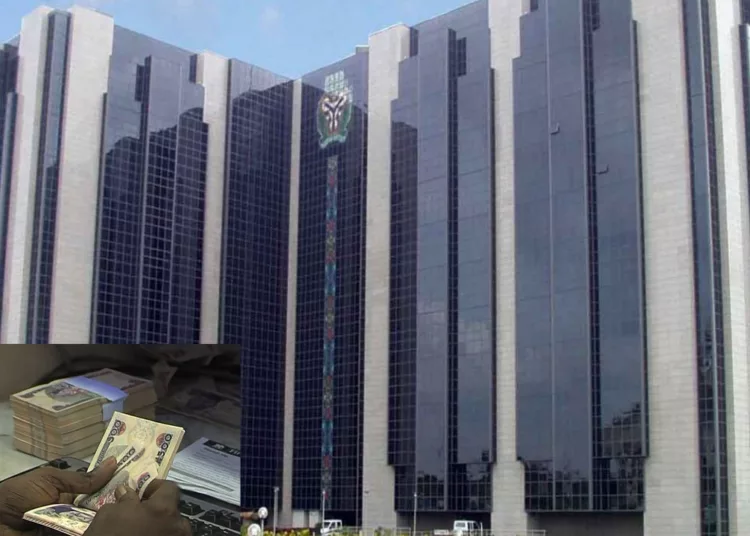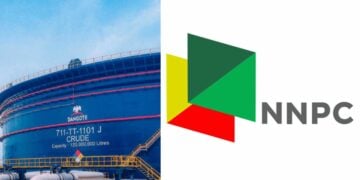Nigeria’s listed banking stocks’ value declined by N2.069 trillion in 16 trading days following the announcement of the recapitalisation exercise by the Central Bank of Nigeria (CBN).
This is as the April 30, 2024 deadline that the CBN gave banks in the country to submit their recapitalisation plans and strategies expires tomorrow.
The sector on the Nigerian Exchange (NGX) has witnessed massive sell-off since the beginning of April, thereby triggering a huge loss of N2.069 trillion. The banking stocks comprise Ecobank Transnational Incorporated (ETI), Fidelity Bank, Guaranty Trust Holding Company (GTCO), Jaiz Bank, Sterling Financial Holdings Company, Unity Bank, Wema Bank, FCMB Group, Stanbic IBTC Holdings, United Bank for Africa (UBA), Zenith Bank, Access Holdings and FBN Holdings (FBNH).
Recall that on March 28, 2024, CBN had revised the minimum capital requirements for banks and, according to data compiled by LEADERSHIP, the overall total market value of the banking stocks dropped by N2.069 trillion to N6.013 trillion as of April 26, 2024 from N8.082 trillion on March 28, 2024.
Also, the NGX Banking Index within the period under review recorded a decline of 25.75 per cent from 1,029.63 points on March 28, 2024 to 764.50 points when it closed trading on April 26, 2024.
Of the 13 banking stocks between March 28, 2024 and April 26, 2024, only ETI recorded a gain of 16.12 per cent. On the other hand, FBNH recorded the biggest loss of 42.76 per cent, while GTCO followed with a decline of 32.38 per cent.
Access Holdings was down by 32.24 per cent, Sterling Financial Holdings Company (-29.26 per cent), Zenith Bank (-26.74 per cent), Wema Bank (-26.47 per cent), FCMB Group (-19.41 per cent), Unity Bank (-18.36 per cent), UBA (-17.86 per cent), Jaiz Bank (-15.83 per cent), Stanbic IBTC Holdings (-11.61 per cent) and Fidelity Bank (-6.00 per cent).
Speaking to LEADERSHIP on the current banking stock performances, the managing director of HighCap Securities Limited, David Adonri said “after the announcement by the CBN directing banks to recapitalise, the market started declining, but we cannot see for sure that, that policy is behind the decline in the prices of banks’ stock since that announcement was made.
“I think the major factor should be the second announcement that restrained banks from paying out good dividends in line with their extraordinary income within the financial year.”
Another reason he associated with the situation was the contractionary monetary policy of the Central
Bank wherein the interest rate had been hiked heavily in the last MPC meeting. So, this has caused a migration of financial assets away from equities to debt, he stressed.
Adonri explained that the recapitalisation structure, as directed by CBN, is predicated on the flow of fresh capital to the banks.
“The banks will have to raise fresh capital from all the sources where they can raise. But we are presuming that a lot of them will have to leave the capital market. They will come to the primary market to raise fresh capital. Judging by historical antecedents, that is likely to cause some price movement in the banking sector before the banks hit the market to float their public offerings,” he said.
On mergers and acquisitions, he said “there is no need because banks are segregated into different segments. Some are regional banks, some are national Banks, and some are international banks. So, any bank that is unable to meet the minimum requirement for a segment will drop down to the lower segment instead of going to a forced merger or offering itself for acquisition.
“But banks have been given about two years to raise fresh capital. What will happen is that there will be a timetable in the capital market that will make them come one after the other so that the market will not be fatigued if all of them are to swamp the market at a fair swoop. I believe that the SEC will come up with a timetable that will give space for each of the listed banks to come to the market via a public offering so that the success rate will be very high.”
The head of Investment Management at STL Asset Management Limited, Oluwaseun Magreola said this bearish sentiment was beyond banking stocks.
Magreola said “since the MPR was jerked up by 400 basis points by the CBN governor in February, the whole equity market has been at risk of a negative turnout. Over the years, there’s been a strong inverse correlation between the fixed income market and the equities market.
Magreola asserted that the reaction to the high yields in the fixed income market was ‘quite slow’, noting that most investors were waiting to earn their dividends.





